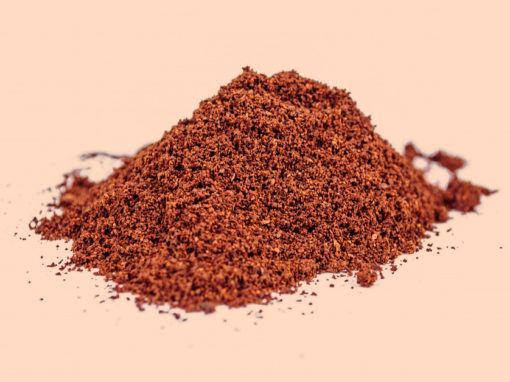Testosterone is a vital male sex hormone located in the testicles and other body parts, such as adrenal glands.
This hormone is primarily responsible for a man’s normal sexual function(sperm production, sex drive, reproductive health, etc.) and sexual development (growth and development of penis and testicles).
In addition, this hormone is responsible for producing masculine traits such as increased muscle mass, dependent voice, facial hair, and increased muscle mass.
Women also produce this hormone, but the levels are significantly lower than men.
It is vital for the overall well-being and health of a person. Having low levels of this hormone in the body could affect normal sexual function.
The article is a part of our comprehensive series on “What is testosterone?”.
What causes low testosterone levels in men?
As a man starts to age, the testosterone levels in his body gradually decline. This will mainly begin after the age of 30 and continue throughout his life.
Here are some of the leading causes of low testosterone levels in the body:
- Ageing
- Chronic kidney failure
- HIV/AIDS
- Treatment for cancer(Chemotherapy)
- Sudden gain or loss of weight
- Obesity
- Type-2 diabetes
- Excess oestrogen in the body
- Alcohol abuse
- Liver cirrhosis
- Hypothyroidism
- Radiation exposure
- Trauma
- Sleep apnea
- Steroid abuse
- Metabolic-disorders etc.
Signs of low testosterone in men
If you have symptoms indicating low levels of testosterone in your body, here are some of the notable signs to look out for:
1. Fatigue
Are you feeling tired despite getting plenty of sleep, or are you finding it hard to motivate yourself for a workout?
If so, the chances are high that you might have low testosterone levels in your blood. Low levels in your body cause fatigue and decreased energy levels.
2. Low libido
Testosterone plays a vital role in maintaining the sex drive in a man. Low levels in the body result in reduced sex drive.
Although it is normal for the sex drive to drop as a person ages, if you are experiencing a drastic drop in your sex drive, then there is a high chance that you are having low testosterone levels in your body.
3. Low semen volume
Men with low testosterone levels in their bodies will notice a low volume of semen during ejaculation.
4. Difficulty retaining an erection
Erectile dysfunction is one of the most visible signs that indicate that your body has a low volume of testosterone.
Although this hormone doesn’t have any direct role in maintaining an erection, they stimulate receptors in the brain responsible for nitric oxide production. This will help to boost the chemical reaction necessary for maintaining an erection.
When its levels in the body are low, the above chemical reaction will be hindered, making it hard to achieve or retain an erection.
However, you need to understand that testosterone is just one of many hormones that help achieve an erection. Sometimes other health problems also cause erectile dysfunctions. These include:
- Stress
- Anxiety
- High blood pressure
- Smoking
- Thyroid issues
- Depression
- High cholesterol
- Smoking etc.
If you are facing a hard time retaining your erection, don’t jump to an immediate conclusion. Instead, consult a certified sexologist to determine the exact cause.
5. Hair Loss
This is one of the most neglected symptoms by many. Although genetics play an essential role in hair loss for men, low testosterone levels are also known to cause body and facial hair loss in men.
6. Increase in body fat
An increase in body fat is one of the notable symptoms of low testosterone in the body. Some men also develop enlarged breast tissue (gynecomastia). This generally occurs due to the imbalance of oestrogen and testosterone in the body.
7. Loss of muscle mass in the body
As this hormone has a pivotal role in muscle development in the body, men who have low levels will notice a reduction in muscle mass.
8. Mood Swings
Along with influencing the physical process in the body, it can affect the mental process. This is the main reason why men who have low amounts of this male sex hormone have mood swings, inability to focus, irritability or other mental issues.
9. Reduction in bone mass
Testosterone plays a vital role in strengthening the bones. A low amount of this hormone in the body will cause the bone mass to reduce and weaken.
10. Memory problems
Some researchers believe that levels of testosterone in the body could affect memory. These are some reports that its supplementation helped improve memory function in several men.
However, there isn’t enough scientific evidence to prove the same.
11. Low blood count
Research has indicated a direct correlation between low testosterone volume and blood count.
An article published in the Journal of American Medical Association has indicated that it was possible to improve the blood count by supplementing testosterone to men who are low in its volume.
12. Small testicle size
As an adequate amount of testosterone is needed to develop penis and testes, low volumes of this hormone could cause a reduction in the size of testes compared to a man with normal levels.
Techniques to naturally increase testosterone
Here are some practical ways to naturally boost the testosterone levels in the body
1. Maintaining a well-balanced diet
Studies have shown that consuming a well-balanced diet is essential for maintaining the body’s overall health and hormone levels.
A research report published by the Journal of Neuroinflammation has indicated that being overweight and having low testosterone levels is the cause of a range of neurological and inflammatory conditions.
2. Getting adequate sleep
An adequate amount of sleep is necessary to maintain the proper hormonal balance in the body. Various studies have indicated that the hormonal balance gets disturbed in people who don’t get enough sleep.
If your testosterone imbalance is due to a lack of adequate sleep, it can be easily fixed by getting enough sleep.
Giving sleep quality and duration a priority can help maintain healthy male hormone levels. People should aim to sleep for at least 7 to 8 hours every night. Do consult a doctor if you are having trouble sleeping.

3. Stay active
Research published in the European Journal of Applied Physiology has indicated that the more active an individual is, the more the testosterone levels in the blood will be.
Make sure that you don’t stress yourself by over-exercising as high levels of activity will cause low levels in the blood.
3. Reduce stress
Our modern-day busy lifestyle is mainly responsible for shooting up the stress levels in many people.
High-stress level elevates the cortisol hormone in the body, which is responsible for managing a wide range of processes such as metabolism, immune response, etc.
Effective stress management helps to maintain its levels in the body.
4. Avoid alcohol use and drugs
Several studies have indicated that low testosterone is linked with drugs and excessive alcohol use.
Alcohol can affect the hormones and glands responsible for male reproductive health.
In addition, alcohol can also drastically reduce testosterone levels in the body due to cell damage and hormonal reaction.

5. Vitamins and supplements
Deficiency of vital nutrients such as Vitamin D has been linked to low testosterone levels in the body.
Several types of research have indicated that 1/3rd of the American population is deficient in Vitamin D. It is advisable to consume foods such as fatty fish, salmon, cereals, or other milk products to increase its levels as a boost in these levels may also increase your testosterone levels.
Zinc and Magnesium supplements also help to restore testosterone levels if it is the cause for deficiency.
You can also consume Magnesium and Zinc-rich foods such as flax seeds, pumpkin seeds, green leafy vegetables, and whole grains.
6. Medications
Sometimes the medications you are taking will negatively interact to lower the testosterone levels in the body.
One study has indicated that statin, a commonly used medication to lower cholesterol, works by partially reducing the testosterone levels in the body.
Other techniques to increase testosterone
Along with medications, your doctor may recommend testosterone therapy.
The effectiveness of testosterone supplements is proven despite with potential associated risks. A report published in Nature Reviews Endocrinology for example has raised the potentially unaddressed side effects of the treatment.
Doctors often recommend this regime along with necessary monitoring when a person is unable to naturally produce this hormone.
If you are concerned about your levels, you can discuss with your doctor to find out whether supplementation or therapy may help.
There are several ways to administer testosterone. These include:
1)Intramuscular injections
2)Topical creams
3)Testosterone Implants
4)Intranasal administration
5)Oral consumption
Testosterone supplements
In the earlier section, we mentioned several symptoms that you might face if you are deficient in testosterone. These include loss of libido, fatigue, sleeping difficulty, etc.
Consuming supplements can help to prevent worsening of these symptoms.
However, supplements are not meant to treat the condition other than maintaining your current testosterone level. Proper medication is warranted if you are already symptomatic. Talk to your doctor for more comprehensive care.
Click here for more on buying testosterone supplements in Malaysia.

Bottom Line
Testosterone is undoubtedly one of the essential hormones in men responsible for sexual development and functions.
This hormone has a range of functions from muscle strength, production of RBC in males, distribution of body fat, production of sperms, etc.
This article provides a checklist of some of the symptoms that you might experience if your body has a low amount of this hormone and guidance on when to seek medical help.
In addition, you can maintain and even boost testosterone production naturally in your body by healthy lifestyle changes, getting more sleep and a well-balanced diet.



